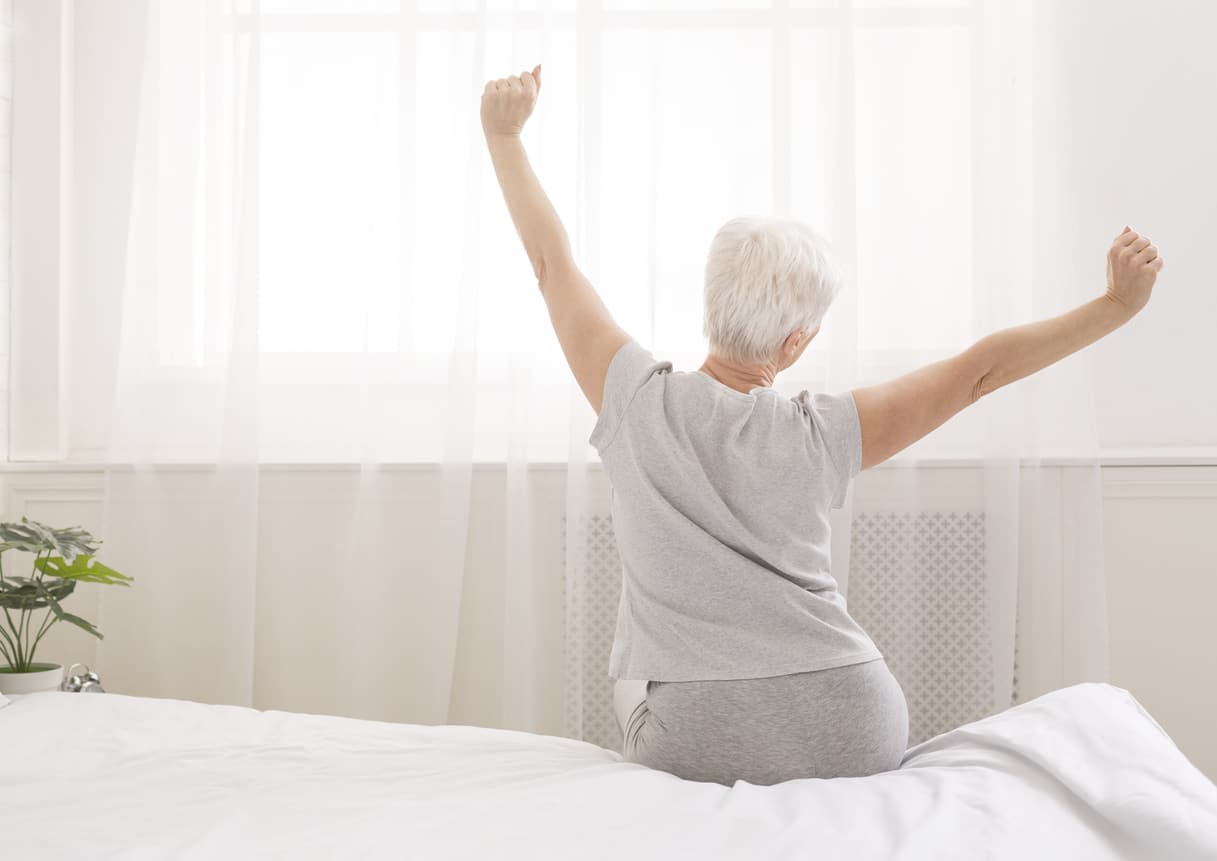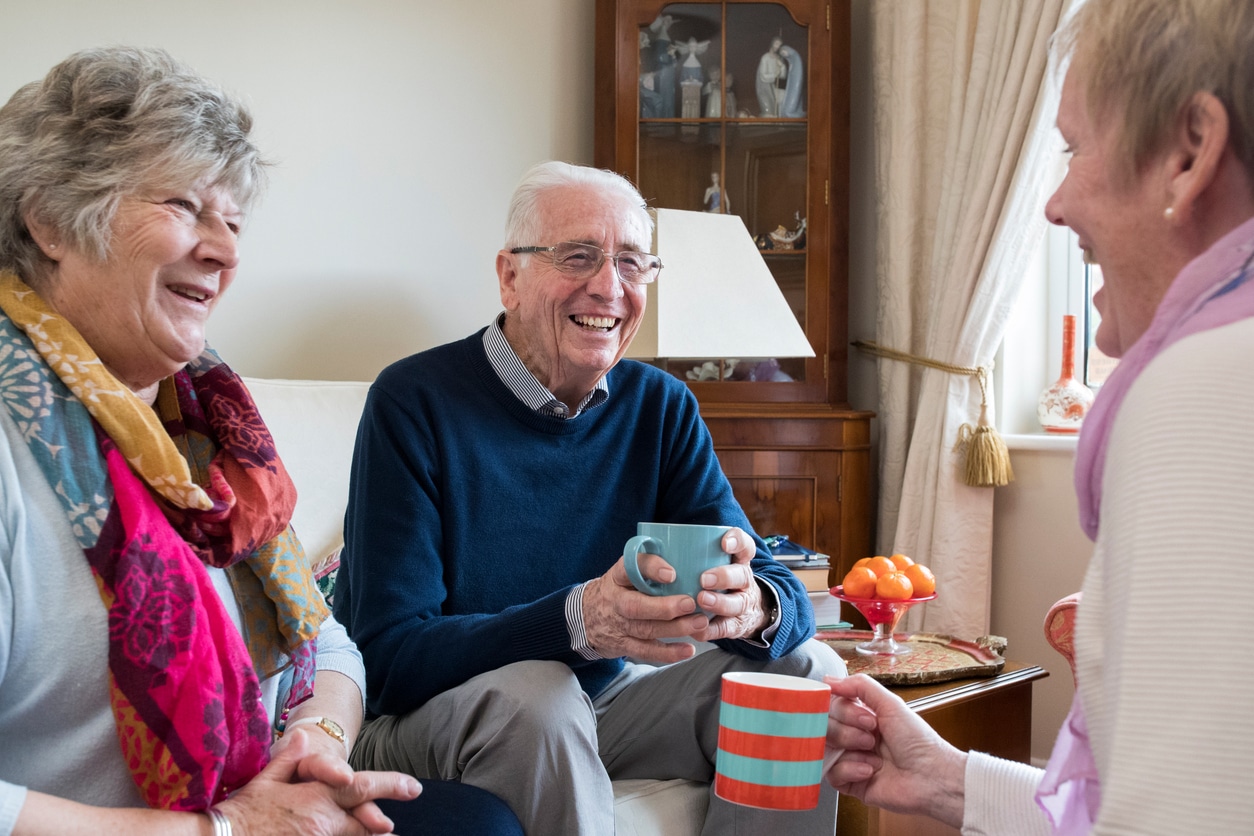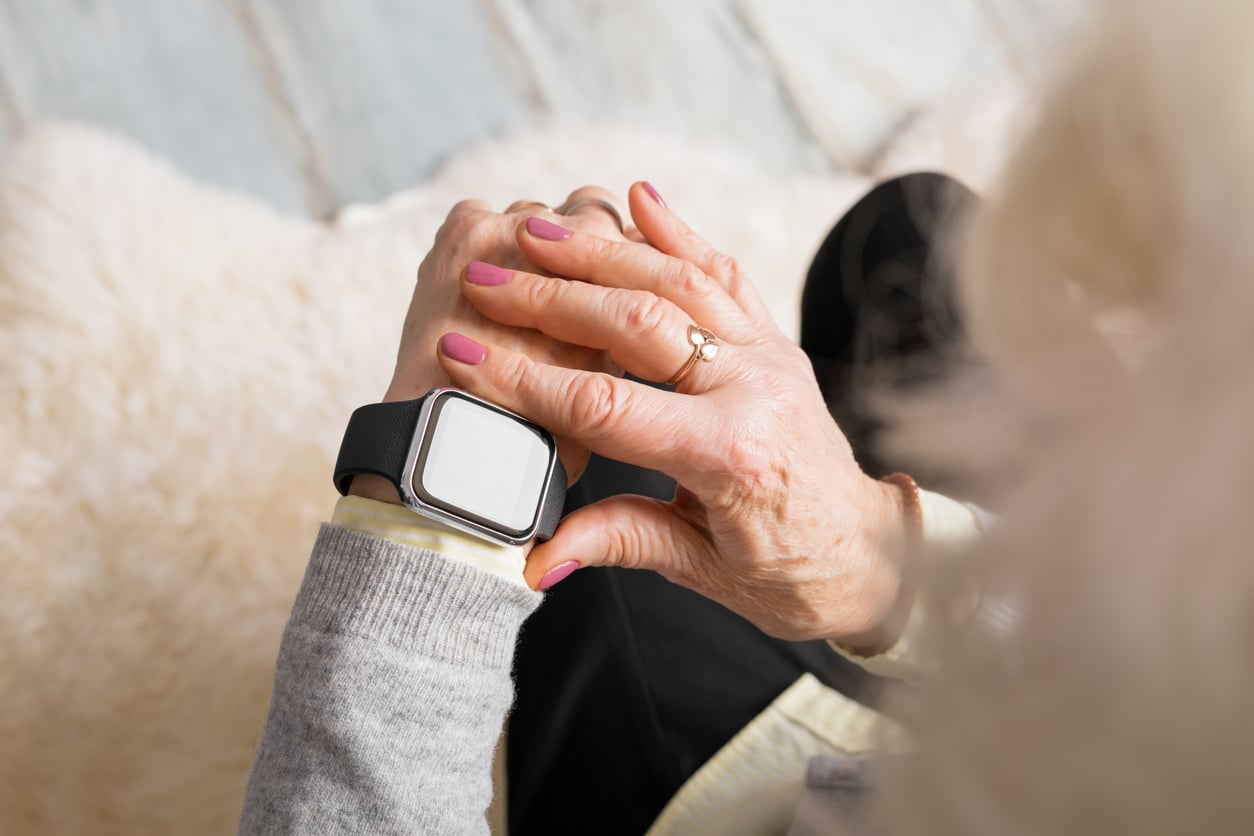Poor sleeping doesn’t just make us cranky, it can impair our daytime function, increase risk of falling and exacerbate or lead to serious health issues. That’s why It’s important to help identify possible sleep problems and to see a primary care provider or specialty practitioner.
Consequences of Lack of Sleep in Older Adults
“Sleep is important for everyone,” says asserts Michael V. Vitiello, PhD, professor of psychiatry and behavioral sciences, gerontology and geriatric medicine, and biobehavioral nursing at the University of Washington. “But in some sense, it is more important for older adults because poor sleep, compromised sleep and sleep disorders all have impacts on daytime function.”
Daytime function includes problem-solving, decision-making awareness and vigilance. When these functions are impaired by a lack of sleep, we’re more prone to slips, trips and falls. That means a good night’s sleep is an important factor in staying independent and safe.
Check out our guide on how to create a safer home.
Sufficient sleep is also crucial for people living with chronic illnesses like diabetes, COPD and cardiovascular disease.
“Long-term sleep deprivation is not a good thing and we’re learning more and more than it may be causal,” Vitiello notes.[i] “There’s very strong data that long term sleep deprivation or chronic insomnia can be associated with development of metabolic syndrome, which is a pre-diabetic condition that can then possibly lead to diabetes. We know that sleep apnea is involved heavily in respiratory and cardiovascular illnesses—it’s a risk factor for stroke and for heart attack.
“Similarly, there’s an emerging literature that suggests that long-term disturbed sleep may be causal elements of Alzheimer’s disease. This has to do with the recent discoveries that there is a system in your brain that clears out waste products—the same waste products that we see accumulated in the brains of people with Alzheimer’s disease. This function is sleep dependent, and if your sleep is compromised, the waste isn’t eliminated as effectively, if at all.”
The 3 Most Common Sleep Problems for Older Adults
Many sleep issues result from a combination of lifestyle choices and sleep habits, sleep disorders, health problems and the medications used to treat them.
1. Insomnia
“The most common sleep disorder for older adults is insomnia, which is a significant impairment in sleep–problems staying asleep, going to sleep or waking up too early–that lasts for a long time,” Vitiello says. “More often than not, it occurs in the face of comorbid illnesses.” Some of the more typical contributors to insomnia include:
- Physical conditions such as diabetes, asthma, sleep apnea and cognitive impairment
- Chronic pain
- Mental health, including depression and anxiety
- Wellbeing issues, such as stress, boredom and isolation
- Caffeine, alcohol and nicotine
- Lack of physical activity or exercising near bedtime
- Medications
Cognitive behavioral therapy for insomnia is the best treatment for insomnia in older adults with chronic insomnia before medication, Vitiello recommends.
2. Sleep Apnea
There are three types of sleep apnea: obstructive sleep apnea, caused by the soft palate blocking the airway, usually during the onset of deep sleep; central sleep apnea, a disorder of the nerves that control breathing; and complex sleep apnea, a combination of the two. Apnea is a causal agent of depression, hypothyroidism, dementia, and heart disease. Solutions to apnea range from losing weight and avoiding sleeping on one’s back to a continuous positive airway pressure (CPAP) machine, mandibular advancement devices and surgery.
3. Restless Leg Syndrome
Crawling or tingling sensations in the legs to the extent that sleep is impossible may indicate restless legs syndrome, also known as Willis-Ekbom Disease. Treatments include exercise, relaxation techniques, and soaking the legs in warm water to relieve symptoms. Medications for more severe cases include dopaminergic agents like Sinemet, benzodiazepines and opiates.
Other Causes of Sleep Disorders in Older Adults
Health Issues
A wide array of conditions can impact sleep, including:
- Alzheimer’s disease and other neurodegenerative diseases, which impact the circadian rhythm
- COPD, which inhibits breathing and proper oxygenation
- GERD (gastroesophageal reflux disease), which causes a sense of acid in the throat that disturbs sleep and may cause waking
- Depression and other mental health issues
- Hormonal imbalance
- Seasonal Affective Disorder
- Alcoholism and substance abuse that disrupt the brain’s ability to regulate sleep cycles properly
- Bladder infections or prostate disease that prompt frequent trips to the bathroom
- Pain from arthritis and other conditions
Medications
Many prescription and over-the-counter (OTC) medications can disturb sleep on their own or in combination with others, including:
- Alpha and beta blockers
- Theophylline to treat asthma
- Corticosteroids
- Antidepressants that include fluoxetine and other SSRIs
- Levodopa and other anti-Parkinsonian drugs
- Cholinesterase inhibitors
- Bronchodilators
- Herbal remedies and supplements such as melatonin
- OTC medications that contain caffeine, pseudoephedrine, glucosamine and chondroitin.
Hypersomnia
Excessive daytime drowsiness, called hypersomnia, is a telltale sign of sleep deprivation and could be indicative of underlying problems. A professional assessment of sleep habits is the first step to addressing these problems. Important questions to ask include:
- How long have you been having difficulties sleeping?
- Do you feel rested when waking up?
- Do you get sleepy in the daytime, especially when sitting still?
- Do you wake up at night? How frequently, including trips to the bathroom?
- Does your sleep partner notice any breathing problems, such as gasping and loud snoring? Do you stop breathing entirely for more than a few seconds?
- Do you have discomfort or restlessness in your legs to the extent you cannot fall asleep or are frequently awakened?
- Do you feel depressed or anxious?
- Do you have racing thoughts or worries when trying to fall asleep?
- Do you take naps, and if so, how frequently and for how long?
- Do you eat or drink anything within two to four hours before bedtime, especially alcohol or caffeine?
- Do you smoke?
- What do you do to relax?
- How much physical activity do you engage in?
What Can Help with Sleeping Problems
For healthy older adults, sleep habits and lifestyle choices can make a big impact on improving sleep quality. Here are a few tips to recommend to seniors who need to improve their sleep:
- Increase physical activity to help induce sleep
- Engage in relaxation methods such as yoga, meditation, guided imagery and breathing
- Create a consistent sleep and waking schedule
- Keep your bedroom clean and dark, but use motion-sensor night lights to reduce fall risk
- Avoid nicotine, alcohol, food, and water a few hours before bedtime
- Expose yourself to more light during the day and less bright light in the evening
- Talk with your pharmacist or healthcare provider about your prescription and OTC medications
Use this information to help the people you care for – and yourself – rest easier and stay healthier.
Don’t disregard professional medical advice, or delay seeking it, because of what you read here. This information is not intended as a substitute for professional consultation, diagnosis or treatment; it is provided “as is” without any representations or warranties, express or implied. Always consult a healthcare provider if you have specific questions about any medical matter, and seek professional attention immediately if you think you or someone in your care may be experiencing a healthcare condition or medical emergency.
1Centers for Disease Control – National Center for Chronic Disease Prevention and Health Promotion, Division of Population Health – Sleep and Chronic Disease. September 21, 2021.




